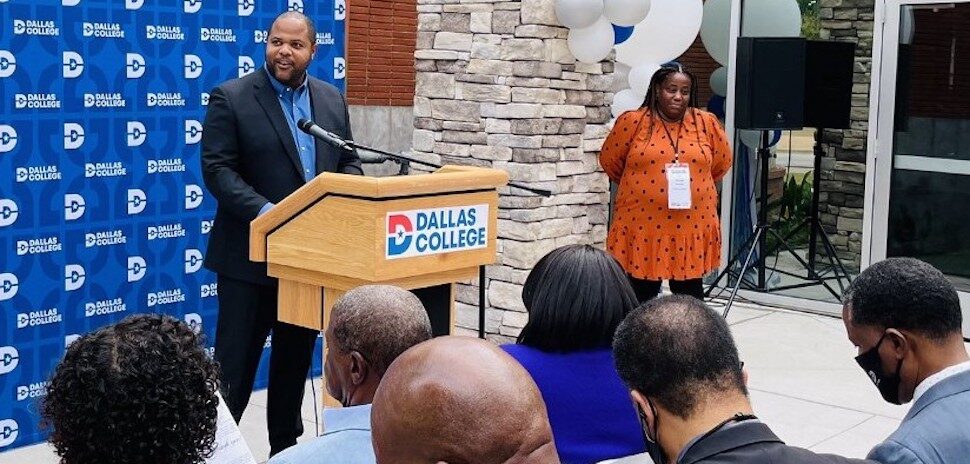It is February 14, 2011, and I’m at the Dallas Magnolia Theater with clients anxiously watching IBM’s Watson computer playing Jeopardy against the game’s all-time leading human champions. The audience is filled with amazement and skepticism. We’re all wondering, “Will computers be able to automate programming jobs in the future?”
After giving this some thought, my current answer is, “Not in my lifetime.”
Computers aid many jobs where repetitive tasks are performed and where massive amounts of data need to be quickly analyzed. However, I believe computers simply provide assistance via the analytical data they produce, and we will continue to rely on human judgment of those insights for appropriate leverage.
The real question we should contemplate is, “How will programmers keep up with the ever-increasing pace of business demands?”
For example, think about your experience using the Internet to read the news or order something online. Chances are that you’ll see targeted advertisements based on your personal profile or maybe some suggested items for you to purchase. You want this experience to be secure, fast, reliable, and available to you at all times on the various devices you utilize.
The real question we should contemplate is, “How will programmers keep up with the ever-increasing pace of business demands?”
One of the latest trends I’m seeing in the creation of compelling consumer experiences is the convergence of industries. For example, the automotive industry is rapidly incorporating technology into smart cars, and telecommunications providers have become integral in enabling services such as navigation, phone, entertainment, and others. In the future, we will see additional merging with other industries, such as insurance or media and entertainment.
The growing collaborative business model has led to the emergence of “ecosystems” consisting of enterprises, business partners, government, entrepreneurs, academia and nonprofits, each of which provide a diverse set of resources that together drive new innovation.
I work in the IBM Global Solution Center located in the Dallas/Fort Worth area where we embrace Design Thinking methodology and physical collaborative settings, which inspire brainstorming and innovation. Such collaborative settings contain whiteboards, post-it notes, and couches for a relaxed environment.
With the majority of an enterprise’s consumer base having grown up in the digital age, new technologies play a critical role in how software is created and delivered in order to create personalized business services to intrigue users. New technologies such as mobile, cloud, analytics, social, and the Internet of Things play a critical role in the delivery of these new applications to consumers. These agile methodologies and technologies enable a business to introduce new services quickly and evaluate consumer interest with smaller investments of time and therefore money. One of the keys for success in this brave new world of business is to select ecosystem partners with experiences in these technologies.
Education on new technologies, including new cognitive capabilities, as well as agile design techniques, will continue to evolve and influence programmers today and in the future. This is happening now so that skills development is available via online coursework and in classroom training. An emerging skills-building approach utilized by young programmers is a hackathon where on-site skills building and short duration competitions emphasize rapid development and an entrepreneurial spirit. Programmers of all ages will need to expose themselves to new and old technologies and find effective ways to integrate new applications with existing enterprise application logic.
With the majority of an enterprise’s consumer base having grown up in the digital age, new technologies play a critical role in how software is created and delivered in order to create personalized business services to intrigue users.
Programmers across the Dallas/Fort Worth area have embraced these technologies, methodologies, physical collaboration spaces, and hackathon approaches to drive business results.
Entrepreneurship and collaborative ecosystems, such as the Dallas Entrepreneur Center and the Texas Research Alliance, are in existence to bolster innovation across a broad ecosystem.
With the grand opening of the United States Patent Trademark Office Dallas Regional Office, an increased focus on inventors, entrepreneurs, startups, and researchers has emerged in the Dallas/Fort Worth area. These partnerships and collaborations will continue to evolve and provide agile development momentum.
Will computers be able to automate programming jobs in the future? Not in my lifetime, but, I’m sure future programmers will most certainly ponder this same question. One thing is for sure, agile programmers with a firm grasp of technology who rapidly design innovative applications will excel in programming!
For a daily dose of what’s new and next in Dallas-Fort Worth innovation, subscribe to our Dallas Innovates e-newsletter.





























